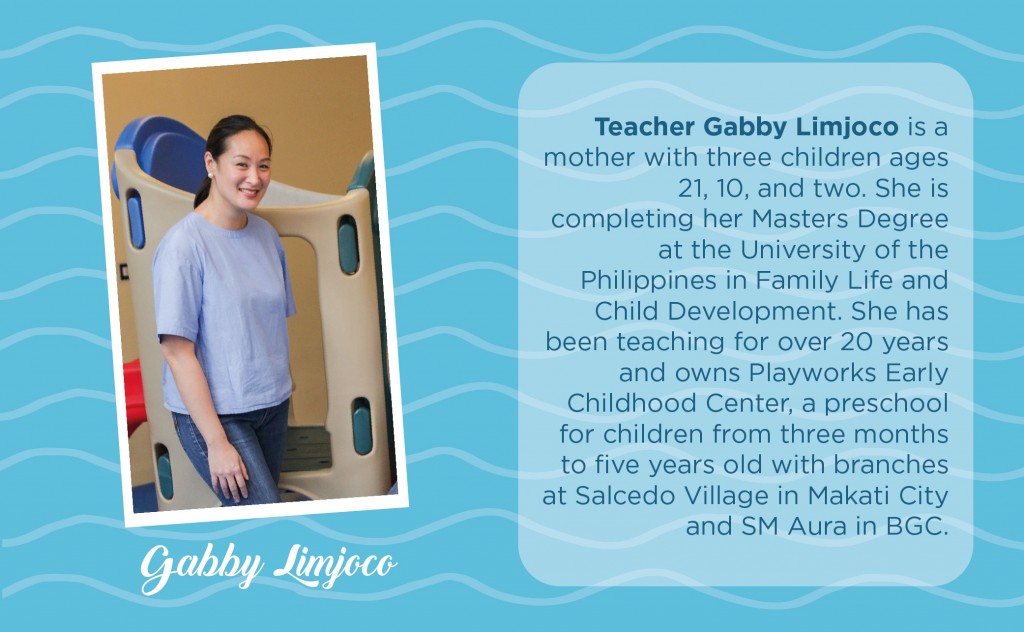By Teacher Gabby Limjoco
There is a great divide between parents who are scrambling for a seat in the neighborhood preschool and those who are choosing to keep their babies at home. Are children who are kept at home missing out?
According a brief from the Harvard University Center for the Developing Child, “Development is a highly interactive process, and life outcomes are not determined solely by genes.” The environment in which your child is raised in provides experiences that can affect how your child develops. While children are born with the capacity to learn how to control impluses, focus attention, and commit certain things to memory, it is their experiences that will dictate how these and their other executive functions will develop. Executive functions are the mental skills we need to get things done.
The biggest question to ask is: What is your child doing while at home? We all know the adage, parents are a child’s first teacher, and that is definitely true. But are parents home with their kids or are the kids home with a caregiver who leaves them on a gadget all day? The reality today is that many of us need to have a dual income household to afford the lifestyle we want. If your home is the same, then attending a few hours of preschool will definitely be beneficial for your child, especially for his social and language development.
Otherwise, if you are home with your child or your child is at home with a caregiver who can provide him with a rich, engaging environment then holding off on school should not cause any delays on your child’s development. Simple everyday routines have a wealth of opportunity for learning. Here are some ways you can ensure your child is not missing out.
1 Allow your child to play
For play to be meaningful, it should be initiated by your child. Allow your child to choose how to play so he can experience freedom in making choices. He will also learn about choices and the consequences or results of his choices. Play should also be spontaneous and not scripted. This will teach your child about decision making and flexible thinking such as when things don’t go as planned with a playmate or a certain toy. In true play, children are so engaged they lose the concept of time or space. There are no risks and they can freely experiment or try new ideas.
2 Talk… a lot
Studies show that children who hear about 30,000 words a day show better academic success by Grade 3. Make sure to surround your child with talk, not from the latest YouTube video, he needs to hear your voice. Talk about anything, even if your child is an infant who isn’t cooing just yet. Tell him about his diaper change or read the recipe you are following out loud to him. Read books and tell him stories.
3 Explore the outdoors together
Children are natural explorers and everything is new to them. Take them outside for a walk. Even if you live in the city, they will still be thrilled to feel the heat on the stones on the street. Talk to them about how the leaves move when the wind blows or look at the flower from all angles. Pick up a twig and feel its bark. Turn over a rock and check out the worms underneath it. These are all wonderful opportunities for your child to learn about the earth and our environment.
4 Use puppets and think out loud to solve problems
Schools are rich in opportunities for children to develop their social and emotional skills. They learn how to express their feelings and work with other children. Help your child develop these skills through puppet play. Children will talk about their feelings to a puppet. You can also show them how to resolve conflicts or challenging topics through puppets. Watching the storyline unfold through a puppet eases the focus away from the child. Thinking out loud when you experience a challenging situation also models for your child how to appropriately resolve problems.



Leave a Reply